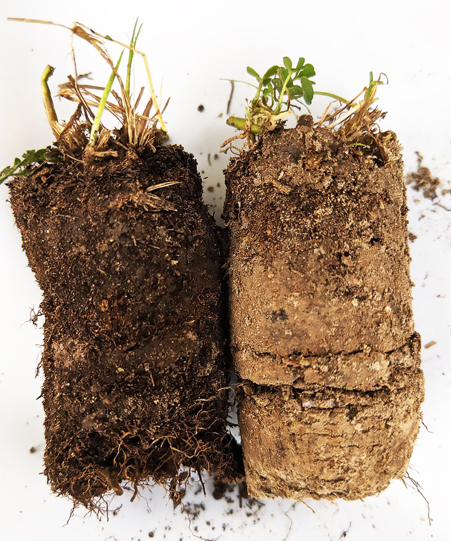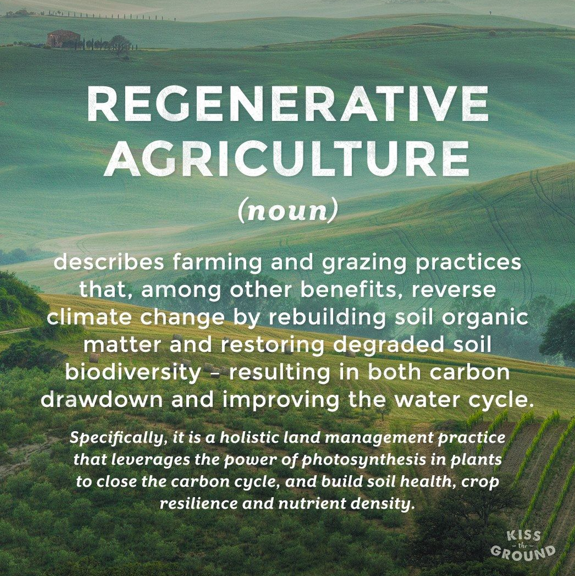Boomplaats has been in the same family for over a century, nestled in the Maluti Mountains in the south-eastern Free State. This is South Africa’s only certified organic cattle, sheep, and pasture-raised pig farm.

Regenerative farming isn’t a new agricultural method. This was the traditional farming way in previous centuries before today’s modern “short-term gain, long-term pain” systems were popularised. Boomplaats’ philosophy of regenerative farming is to – simply put – reduce inputs and increase outputs. This farm uses no fertilisers, fungicides, herbicides, pesticides, antibiotics or vaccines. Cattle and sheep are 100-percent
grass-fed – you won’t find any grains or soy in their diets. To further underline the farm’s regenerative approach, it is completely off the grid: it generates all electricity from solar power and uses only solar-pumped borehole water.
What marks Boomplaats as innovative? It practices rotational grazing. The 410-hectare farm’s been subdivided into 40 permanent camps that range between 5 and 30 hectares each. Cattle and sheep only graze for one day per 5-hectare area, meaning that one full rotation around the farm takes about three months to complete.

Allowing the animals to move freely over the entire farm would lead to long-term pains. Animals are fussy eaters and if left to their own devices in a large camp, they’d continuously graze the more palatable recent growth. After years of selective grazing, these plant species will die off to negatively affect the biodiversity and quality of the pastures. By rotating the animals through the camps, it ensures the animals get fresh pasture and a balanced diet every day.
Another benefit of regenerative farming is that the pastures will be grazed homogeneously. With the farm’s 250 cattle and 100 sheep grazing a different 5-hectare camp each day, the vacant camps are left idle for three months to completely recoup from the hard grazing. The high number of cattle and sheep leave behind large quantities of dung and urine, which feeds the soil’s micro-organisms, such as dung beetles and earthworms, which break down the dung into fertiliser for the pasture.
It also naturally breaks the internal and external parasitic cycle. Parasites – such as ticks and internal worms – deposit their eggs in the fields while the animals are grazing. These parasitic eggs take one to four weeks to hatch; by the time the eggs hatch, the animals are far away in a new camp where they’re not susceptible to being hosts again
This high-impact grazing and hoof action disturbs the pasture in a positive way. The ideal grazing period would leave the pasture a third grazed, a third of the vegetation trampled into the soil, and a third left to continue to photosynthesize. The trampled vegetation, also known as mulch, performs a very important function: it provides armour to the soil to prevent soil erosion, traps moisture, feeds micro-organisms that create humus, and builds soil structure. This humus increases the carbon content in the soil – and in so doing, Boomplaats assists in the fight against climate change. Boomplaats, together with their soil consultants, are currently documenting the annual increase in carbon content in the farm’s soil to generate additional income from the carbon credit markets.
Boomplaats is certified organic through SAOSO (South African Organic Sector Organization) and their humane farming protocol is approved by the Department of Agriculture, Forestry and Fisheries (DAFF) and the farm, abattoir and outlet is audited by SAMIC (South African Meat Industry Company).
Boomplaats supplies all its meat to award winning Impala Butchery in Northcliff, Johannesburg. Boomplaats recently also started producing the country’s first pasture-raised Chorizo and Salami product range through their online shop https:https://boomplaats.co.za/shop/.














